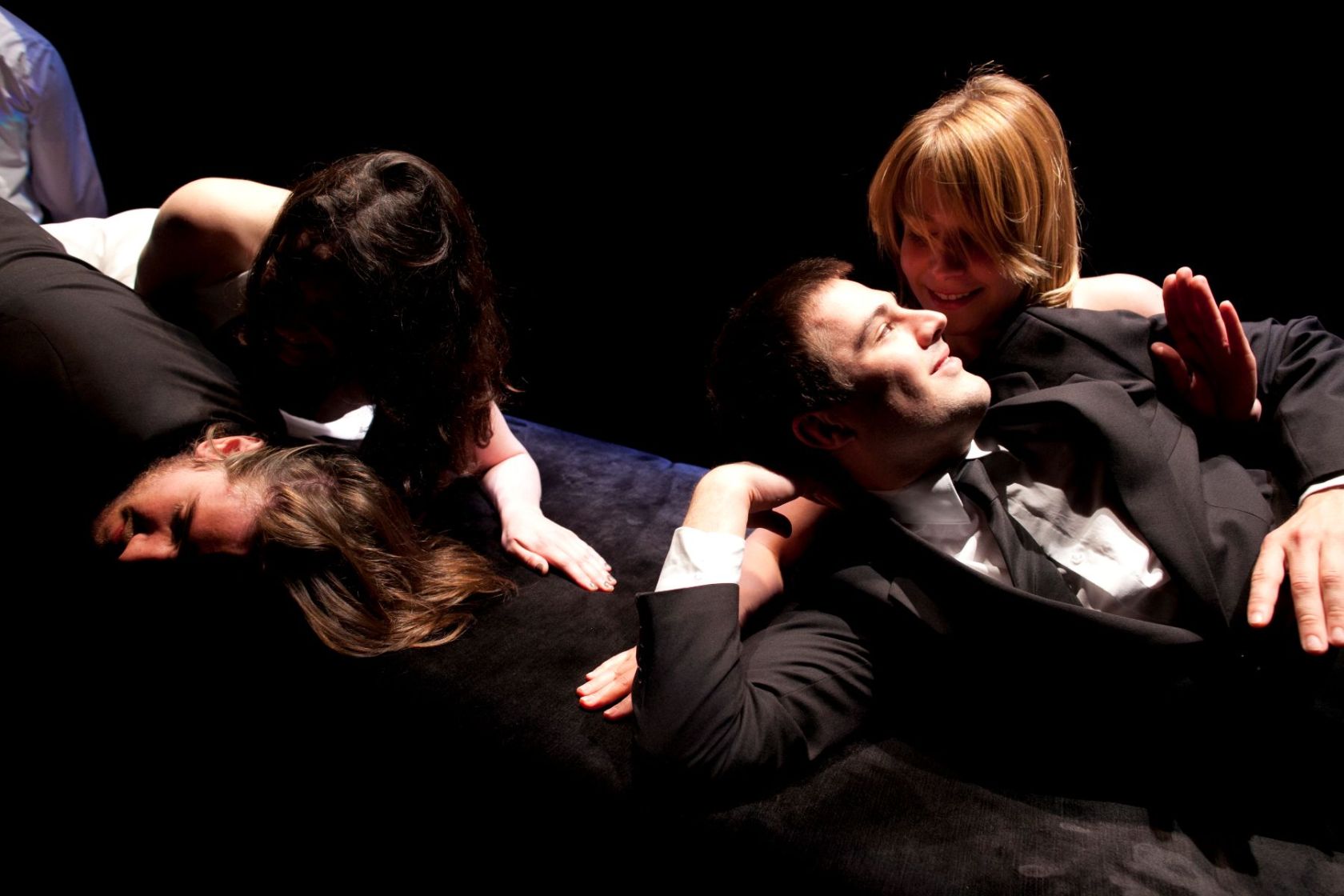Tristan and Isolde is coming to Budapest
The Slovenian-Hungarian coproduction will be performed on Ódry Stage in May.

The smashing story of Tristan and Isolde adapted by Jean Cocteau was directed by Zoltán Balázs in the spring of 2012 and played by young Slovenian actors in Mini Teater. The coproduction interprets the many times adapted human drama of Tristan and Isolda’s love, the constant fight of Eros and Thanatos with minimalist acting style. The story of Tristan and Isolde is a constant levitation between life and death, dream and reality – their love is the fragile experience of the instantaneous eternity. It is balance between everyday and ethereal, specific and abstract. One body. Single beat of two hearts. Reflexes of twin souls. Their story gives us the chance to evoke the promise of Eden that has come true. What has torned this world half? Mini Teater`s performance searches the answer – exemining the fastidious balance of man-woman relationship – with unconventional means.
The antecedent of this performance was the nonverbal Egg(s)hell built on improvisation, which was performed first in 2008 with great success and later achieved international success too. The "simply complicated” (Péter Molnár Gál) body language which the director integrates in the Cocteauian text and dramaturgy in English was first used in Egg(s)Hell.
The performance is in English.
In Budapest the performance can be seen with Hungarian subtitles.
Concept and direction: Zoltán Balázs
Dramaturg: Judit Góczán
Set and costume: Ana Savic Gecan
First assistant director: David Cerar
Production manager: Sylvia Huszár
Actors: Vesna Kuzmić, Ana Urbanc, Jernej Čampelj, Robert Korošec, Rok Kunaver, Tadej Pišek, Marko Ujc
The first performance of Mini Teater’s and Maladype’s coproduction was on 24 March 2012 in Ljubljana.
Tristan and Isolde was in the official selection of the 47th Borstnik Festival in 2012.
„I was looking for performances which can surprise me and can appeal to the experimental mood of the audience. A performance in which the audience is not staring at admirable statues and does not undergo the familiar effects. I like to see performances which are changed by the director from different aspects, and through this he/she can inspire the audience and gives them a kind of test page. I think those theaters are worth showing which communicate and provoke the audience’s attention – Zoltán Balázs’s Tristan and Isolde is a performance like this.” (Primoz Jesenko, playreader, critic)
„When directing the mitology of Tristan and Isolde, the director cut down the story radically, left the marginal episodes and the supporting actors out, renounced particular historical references, and he did not use the common decencies of the previous performances. The basic conflict is built around a stripped down love triangle often moved by pure emotions, between Isolde, Tristan and Tristan`s uncle, Mark. Due to the obliterations in the text, dialogues point to the basic situation, so they can give space to the minimalist acting style, the incessant motion, the voices that shell be symbolically interpreted, and the minimalist set.”
Zala Dobovsek, Delo, 12 April 2012.
